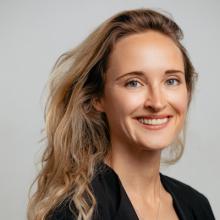Alexa Norton
Why did you decide to pursue a graduate degree?
Before starting my doctoral studies, I worked in health research in the BC health system. I witnessed the gap that exists between research and policy-making, especially when it comes to drug policy and substance use services. I decided to pursue a graduate degree because I saw an opportunity to leverage my professional experience and networks and ask relevant, community-driven research questions about overdose response, specifically governmental and institutional responsibility. I believe that research should have positive policy impacts for people who use drugs, their families, and our collective communities.
Why did you decide to study at UBC?
I did my undergraduate degree at UBC and am happy to be back as a doctoral student. I've lived and worked in Vancouver for over a decade, and studying at UBC enables me to stay connected and accountable to my community. There are brilliant minds studying and working in my field at UBC and its affiliated research institutions, and I'm grateful to be in close proximity.
What is it specifically, that your program offers, that attracted you?
The Interdisciplinary Studies Graduate Program is the perfect home for me. My research is located between public health and health policy and integrates lenses from critical Indigenous, feminist, and sociological traditions. ISGP encourages its students to be interdisciplinary, and I love that realistic approach to a changing the world.
What was the best surprise about UBC or life in Vancouver?
The best surprise about returning to UBC has been the number and diversity of opportunities that are available for graduate students. I feel incredibly privileged to study here.
What aspects of your life or career before now have best prepared you for your UBC graduate program?
My experience working in the health system. I'm excited about the new opportunities arising for researchers to participate in systems and governance as embedded scholars, and for the exchange that occurs that when different life experiences and knowledge converge.
What advice do you have for new graduate students?
Ask meaningful research questions that are set in partnership with affected communities; be connected to and accountable to the communities you conduct research in; be a humble learner.
